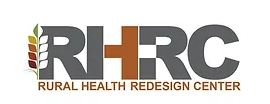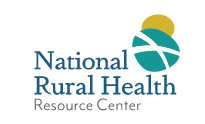April 12, 2023

CMS Proposes Policies to Improve Patient Safety and Promote Health Equity Thursday, May 4, 2:00 – 3:00 p.m. CST
On April 10, 2023 the Centers for Medicare & Medicaid Services (CMS) issued a proposed rule for inpatient and long-term care hospitals that builds on the Biden-Harris Administration’s key priorities to advance health equity and support underserved communities. As required by statute, the fiscal year (FY) 2024 inpatient prospective payment system (IPPS) and long-term care hospital prospective payment system (LTCH PPS) rule updates Medicare payments and policies for hospitals. The rule would also adopt hospital quality measures to foster safety, equity, and reduce preventable harm in the hospital setting. CMS is proposing to recognize homelessness as an indicator of increased resource utilization in the acute inpatient hospital setting, which may result in higher payment for certain hospital stays. This action aligns with the Administration’s goal of providing support to historically underserved and under-resourced communities.
“CMS is helping to build a resilient health care system that promotes good outcomes, patient safety, equity, and accessibility for everyone,” said CMS Administrator Chiquita Brooks-LaSure. “This proposed rule reflects our person-centric approach to better measure health care quality and safety in hospitals to reduce preventable harm and our commitment to ensure that people with Medicare in rural and underserved areas have improved access to high-quality care.”
For acute care hospitals paid under the IPPS that successfully participate in the Hospital Inpatient Quality Reporting program and are meaningful electronic health record users, the proposed increase in operating payment rates for FY 2024 is projected to be 2.8%. This reflects an FY 2024 projected to be 2.8%. This reflects an FY2024 projected hospital market basket update of 3.0%, reduced by a projected 0.2 percentage point productivity adjustment. For FY 2024, CMS expects the proposed increase in operating and capital IPPS payment rates would generally increase hospital payments by $3.3 billion. For LTCHs, CMS proposed to increase the LTCH PPS standard Federal payment rate by 2.9%. Overall, CMS expects LTCH payments under the dual-rate payment system to decrease by 0.9%, or $24 million, primarily due to a projected decrease in high-cost outlier payments in FY 2024 compared to FY 2023.
“With this proposed rule, CMS is more accurately paying hospitals and recognizing for the first time that homelessness, as a social determinant of health, also impacts resource utilization,” said CMS Deputy Administrator Dr. Meena Seshamani. “Creating incentives for hospitals to provide excellent care for underserved populations lays the foundation for a health system that delivers higher-quality, more equitable, and sager care for everyone.”
Advancing Health Equity
CMS is proposing to make health equity adjustments in the Hospital Value-Based Purchasing Program by providing incentives to hospitals to perform well on existing measures and to those who care for high proportions of underserved individuals, as defined by dual eligibility status. This builds on previous efforts to advance health equity through the finalized health equity adjustment in the Medicare Shared Savings Program and finalized policies in Medicare Advantage and Part D Star Ratings Program. CMS also proposes to recognize the higher costs that hospitals incur when treating people experiencing homelessness, when hospitals report social determinants of health codes on claims. In addition, CMS is requesting comment on how to further support safety-net hospitals.
CMS is also proposing that rural emergency hospitals could be designated as graduate medical education training sites. As a result, more medical residents would be able to train in rural settings, which can help address workforce shortages in these communities. This proposal builds on other policies to support access to care in rural and other underserved communities.
Promoting Patient Safety
Consistent with the CMS National Quality Strategy and the HHS National Healthcare System Action Alliance to Advance Patient Safety goals to promote the highest quality outcomes and safest care for all individuals, the proposed set of quality measures aims to foster safety and equity, and to reduce preventable harm in hospital settings. Among this set is a proposal to measure the rate of patients and residents in long-term care hospitals who are up to date on their COVID-19 vaccinations and new, additional measures for screenings for cancer and social drivers of health.
For a fact sheet on the proposed payment rule, visit: https://www.cms.gov/newsroom/fact-sheets/fy-2024-hospital-inpatient-prospective-payment-system-ipps-and-long-term-care-hospital-prospective
The FY 2024 IPPS/LTCH PPS proposed rule has a 60-day comment period. The proposed rule can be downloaded from the Federal Register at: https://www.federalregister.gov/public-inspection/2023-07389/medicare-program-proposed-hospital-inpatient-prospective-payment-systems-for-acute-care-hospitals







